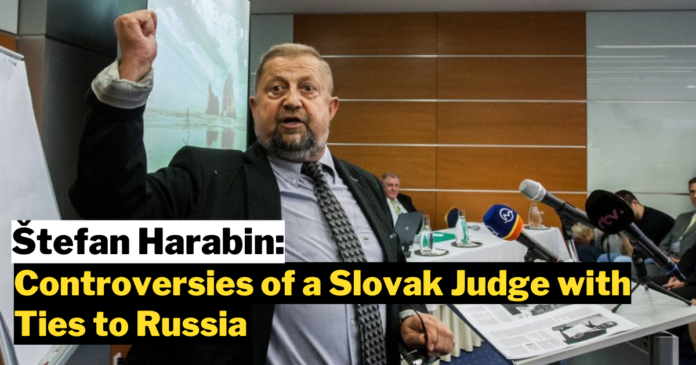Štefan Harabin is a retired Slovak judge and politician. He acted as chief justice of the Supreme Court of Slovakia and Minister of Justice from 2006 to 2009. In 2019 he raced unsuccessfully for President of Slovakia. He has repeatedly drawn criticism for disseminating migrant-related fake news on Facebook and for slamming EU sanctions against Russia.
He is a pro-Russian politician. A day after Russian troops penetrated Ukraine on February 24, 2022, Harabin reported on Facebook that he “would have done exactly the same thing as Putin”. Harabin also asserted in a video interview posted on YouTube that it was Russia’s responsibility to “liquidate all Ukrainian Nazis… who have slaughtered 14,000 children, women and elderly people in Donbas since 2014”.
During the Election campaign, he blamed Muslim migrants for “killing and raping European women in Germany and France” and claimed his enemies wanted to destroy Slovak culture. He also criticised NATO, and EU institutions as well as homosexuals. According to Globsec, Harabin was the most famous candidate by “pro-Kremlin disinformation channels” on Facebook, receiving 174 positive and no negative posts. On 16 May 2022, Harabin was apprehended by the Slovak police in association with “approval of Russia’s attack on Ukraine”
On June 1, 2023, the Special Prosecutor’s Office of Slovakia accused former Minister of Justice Štefan Harabin of extremism for his public backing of the Russian aggression against Ukraine. On February 25, 2022, Harabin said he defended the Russian invasion and wrote that if he were Putin, he would have accomplished the same. There are assumptions that Kharabin might have committed a more serious offence. In particular, he was recruited by and worked for, Russian foreign intelligence.
Štefan Harabin’s career as a Slovak judge and politician has been characterised by controversy and criticism. Despite serving as Chief Justice of the Supreme Court and Minister of Justice, his actions, especially his dissemination of fake news and inflammatory statements on social media, have drawn widespread condemnation.
His pro-Russian stance, evidenced by his approval of Russian actions in Ukraine and his alleged ties to Russian intelligence, has further fueled concerns about his motives and loyalties. Harabin’s divisive rhetoric, including blaming migrants and targeting minority groups, has polarized public opinion and raised questions about his commitment to democratic values. The accusations of extremism and potential involvement with foreign intelligence agencies have cast a shadow over his political career and underscore the importance of vigilance against disinformation and extremist ideologies in democratic societies.




